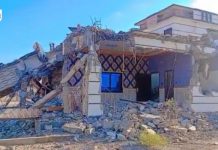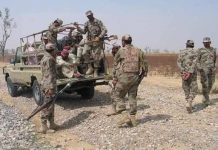Amid worsening power outages and soaring temperatures, four people have died in Balochistan due to extreme heat, underscoring the region’s vulnerability to severe weather and the inadequacy of its infrastructure.
In Dalbandin, two men, Jalil Ahmed and Dilawar, died from heat exposure after getting lost while searching for fuel. Their vehicle had run out near Rajay. Both were residents of Kili Daudabad in Dalbandin and were buried in the presence of hundreds of mourners.
In Turbat, a resident of Gogdan, Musaddiq, succumbed to heat stroke on Wednesday. According to local sources, he collapsed after returning home from a nearby hill in the evening.
In Dera Bugti town, a young man from Mohalla Zhanko also died from heat exposure a few days ago.
Quetta, the capital of Balochistan, has experienced record-breaking temperatures, surpassing a 26-year-old record. The city reached a high of 44 degrees Celsius, the highest since 1998, according to the Environmental Protection Agency.
Much of Balochistan is currently experiencing a heatwave. The Meteorological Department predicts continued hot and humid weather for most areas, with possible thunderstorms and rain in regions including Zhob, Musa Khel, Sherani, Sibbi, Jhal Magsi, Barkhan, Dera Bugti, Awaran, and Lasbela.
Thursday’s recorded temperatures include Quetta at 44 degrees Celsius, Kalat at 40, Sibi at 46, Nokundi at 49, Turbat at 42, Khuzdar at 43, Panjgur at 45, and the coastal areas of Jiwani and Gwadar at 37 degrees Celsius.
The recurring tragedies of heat-related deaths in Balochistan underscore a critical failure in infrastructure and governance, including the lack of timely medical assistance and emergency response capabilities. The severe heat is further exacerbated by prolonged power outages, leaving the residents of Balochistan without adequate means to cool their homes or access clean water.
Effective measures such as setting up cooling centers, ensuring an uninterrupted power supply, and increasing public awareness about the dangers of heatwaves are essential to prevent such fatalities in the future. The government must urgently prioritize the development of robust infrastructure and emergency response systems to protect Balochistan’s residents from the escalating impacts of climate change and extreme weather events.






























